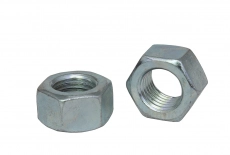



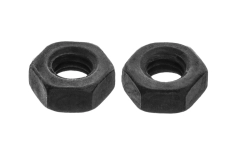



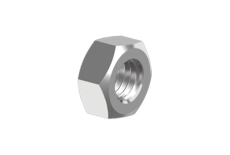



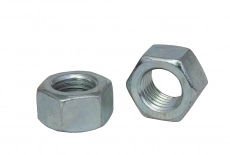



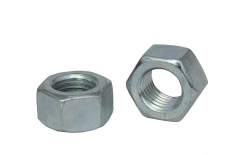



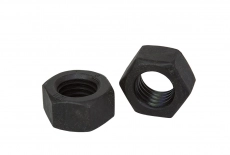



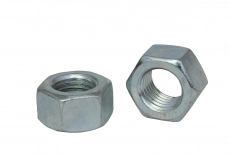



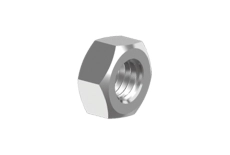



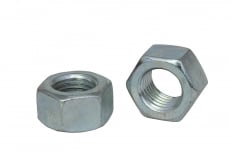



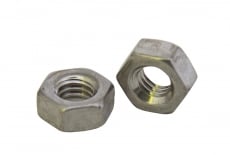

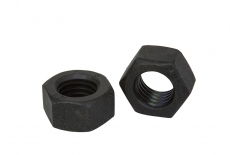



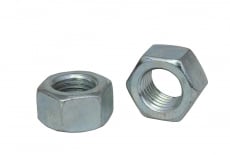



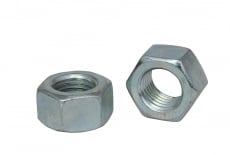



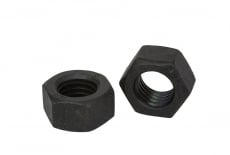



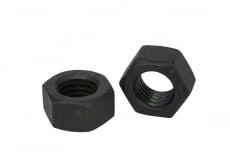



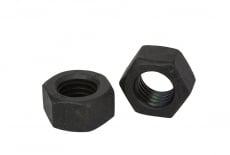



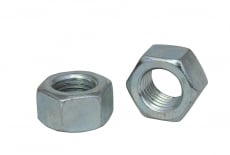



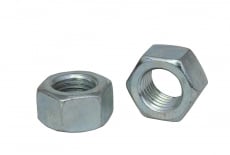



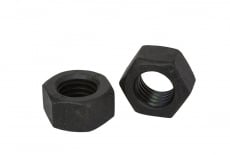



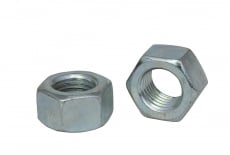



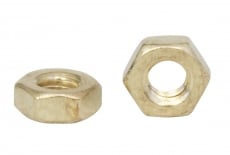

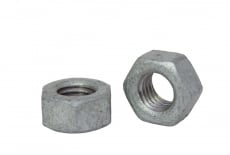



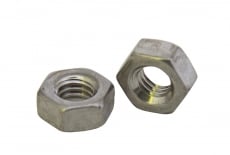

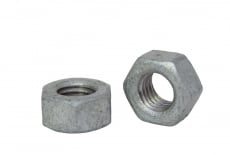



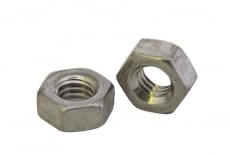

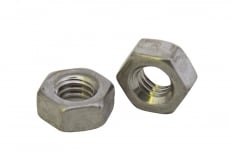

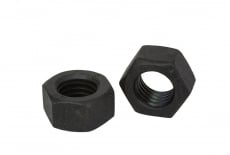



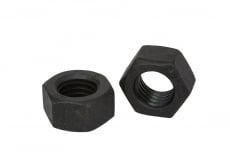



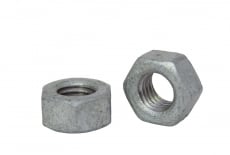



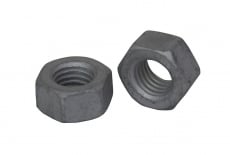



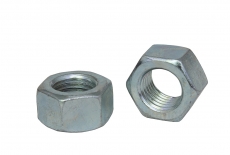



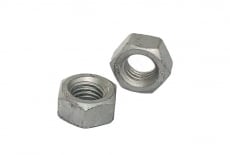



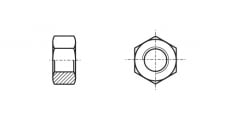 DIN 934 Hexagon nut
DIN 934 Hexagon nut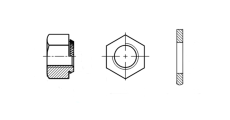
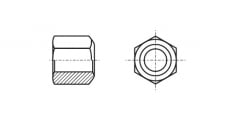 DIN 6330 High hexagon nut
DIN 6330 High hexagon nut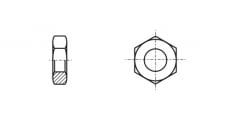 DIN 439 Hexagon nut low
DIN 439 Hexagon nut low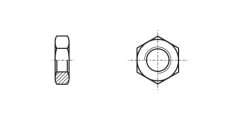 DIN 936 Low hexagon nut
DIN 936 Low hexagon nut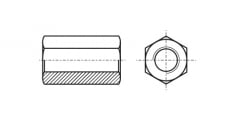 DIN 6334 High hexagonal nut
DIN 6334 High hexagonal nut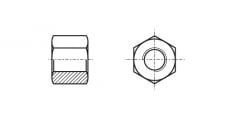 AN 122 Hexagonal nut with a trapezoidal thread
AN 122 Hexagonal nut with a trapezoidal thread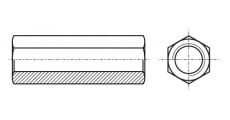 AN 85 Hexagonal connecting nut
AN 85 Hexagonal connecting nut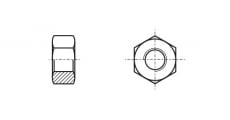 ISO 4032 Hexagon nut
ISO 4032 Hexagon nut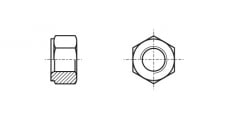 DIN 2510-5 NF Hex nut
DIN 2510-5 NF Hex nut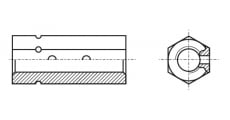 DIN 1479 Hexagon nut with two holes
DIN 1479 Hexagon nut with two holes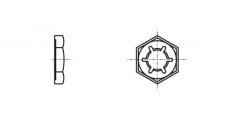 DIN 7967 Locking spring nut
DIN 7967 Locking spring nut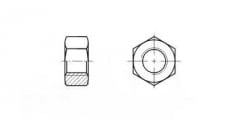 ISO 8673 Hexagon nut
ISO 8673 Hexagon nut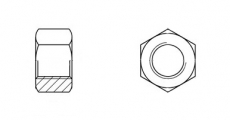 UNI 5587 Hexagon nut
UNI 5587 Hexagon nut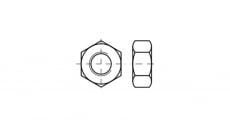






















































































































Hex nuts are fasteners that have a hexagonal shape, which allows them to be tightened conveniently and efficiently with a wrench or spanner. They are made of different materials, such as steel, stainless steel, brass, or even plastic, depending on the specific application and operating conditions. Nuts can have different threads - metric, inch, or specialized threads such as UNC or UNF. The main function of nuts is to provide a secure connection between bolts or studs and the corresponding structural elements. They are widely used in construction, mechanics, automotive, and many other industries and manufacturing.
Hexagonal nuts are one of the most common types of fasteners used in construction, mechanical engineering and other industries. Their main characteristic is their hexagonal shape, which makes it easy to grip the nut with a wrench or other tool. Here are some types of hex nuts:
1. Standard hex nuts (DIN 934, ISO 4032)
- These are the most common type of hex nuts used in combination with standard bolts and screws. They are made of various materials, including carbon steel, stainless steel, brass, and others.
2. Thin hex nuts (DIN 439, ISO 4035)
- These nuts have a lower height than standard nuts and are used in places with limited space or when it is necessary to reduce the weight of the structure.
3. High hex nuts (DIN 6330)
- These nuts have a higher height, which provides a larger contact area with the thread and increased resistance to shear.
4. Hexagonal nuts with nylon ring (self-contracting nuts, DIN 985, ISO 10511)
- Equipped with a nylon ring that prevents self loosening under the influence of vibrations. They are used in conditions where it is necessary to ensure a secure fixation.
5. Hexagonal nuts with flange (DIN 6923)
- These nuts have a built-in flange that distributes the load evenly and prevents damage to the material surface. The flange can also be toothed to provide additional grip.
6. Hexagonal castellated nuts (DIN 935)
- They have slots for a cotter pin, which prevents the nut from self loosening. Usually used in combination with cotter pins and special bolts.
7. Hexagonal nuts with locking device (DIN 980)
- They have special design elements that prevent self loosening without the use of additional parts such as a nylon ring.
8. High load nuts (DIN 6915)
- Designed for use in structures subject to high loads and requiring increased strength.
These types of nuts allow you to find the optimal solution for any specific task, providing the necessary strength and reliability of the connection.
1. Ease of use
Six tightening planes make it easy to use with a variety of tools.
2. Reliable fastening
Large contact area with the tool reduces the risk of nut damage.
3. High strength
Made of durable materials such as steel or brass.
4. Variety of sizes and standards
Available in different sizes and according to standards.
5. Versatility
Suitable for use with various types of bolts and screws.
6. Corrosion resistance
They have a corrosion-resistant coating or are made of suitable materials.
7. Cost-effectiveness
Affordable price makes them a good choice.
These advantages ensure the popularity and reliability of hex nuts in various industries.
Prices for these products vary depending on your needs. More specialized and corrosion-resistant units will have a higher price. While nuts without a coating or with a minimal layer of zinc will be cheaper. We recommend paying attention to those items that are suitable for your project.
In 2025, choose hex nuts made of high quality or stainless steel that meet DIN, ISO, or GOST standards. We recommend nuts with zinc plating or chrome plating for corrosion resistance.
You can buy hex nuts wholesale and retail in the Dinmark online store. Visit our website, select products, add to the cart and place an order. We provide fast delivery in Ukraine and favorable conditions for wholesale buyers.
Enter your email address to follow the Dinmark news